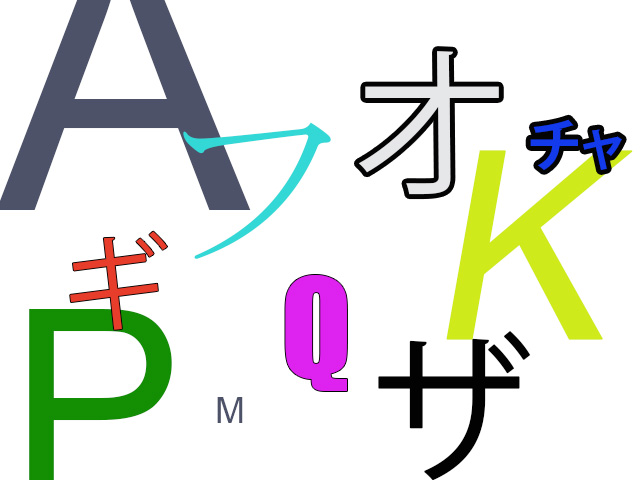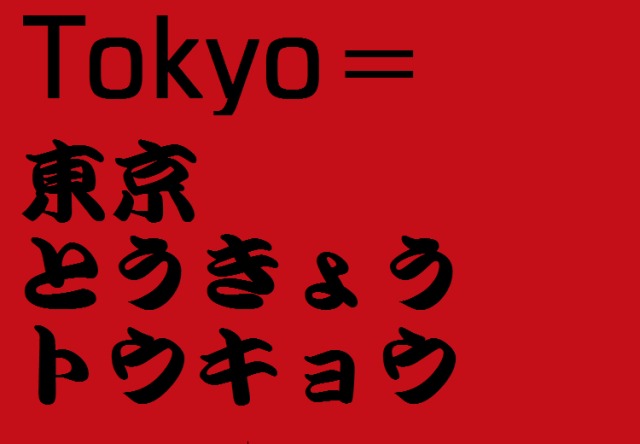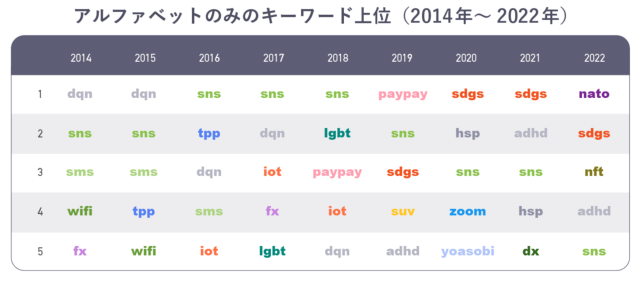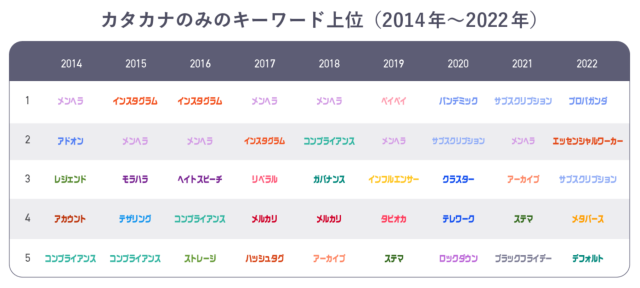Yahoo! Japan finds most alphabetic and katakana words Japanese people want to find out about

GJ on YJ for TCOB.
One of the first things you learn when studying Japanese is that the language incorporates four different styles of writing: the Chinese-derived characters known as kanji, the basic phonetic script of hiragana, its more simplified version katakana, and even the English alphabet which is referred to as romanji.
▼ “Tokyo” written in all four styles
 Image: ©SoraNews24
Image: ©SoraNews24
It is the latter two which can create the most confusion among Japanese speakers – romanji because it’s essentially a foreign language and katakana because it’s generally used to approximate foreign loanwords into Japanese. As the world becomes more globalized, these loanwords have been arriving in Japan a lot more rapidly, making it hard for some people to keep up. In such cases, the easiest solution is to get on the internet and search “What is…”
Knowing this, data analyst Tomohiro Ogawa with Yahoo Data Solution decided to find the most popular queries regarding alphabetic and katakana buzzwords to see which ones have been penetrating the national consciousness over the years by measuring the ones that were most searched in the context “What is…” This can be a gauge of how quickly these words are growing in popularity but also a warning that they may not have become household terms quite yet.
For words made up of letters from the English alphabet, acronyms were the most commonly looked up. This year NATO topped the list, obviously due to the invasion of Ukraine dominating headlines, it was followed by the often talked about Sustainable Development Goals or SDGs set out by the UN, and NFT which has also been appearing more frequently in ads and news reports.
▼ The top five results of alphabetic words from the past nine years

SNS, or “social network service” which is what Japanese people most commonly refer to social media as, is still surprisingly researched despite how widespread the term has become, but does appear to be on the decline.
Also interesting are the additions of purely Japanese words made from English alphabet letters. The name of the popular musical duo Yoasobi popped into the top five briefly in 2020, and 2014 to 2018 featured DQN, an Internet slang term that could perhaps be translated as a “knucklehead” or “numbskull” in the sense of a rough and not very intelligent person. It’s usually found in writing but could be pronounced as “dohkoon” and came from a TV show in the 90s which featured characters that could be described as DQN.
Looking at katakana words, there was a much more diverse group. Once again owing to the war in Ukraine “propaganda” was the most looked up word when rendered in Japanese phonetics. It was followed by “essential worker” which honestly seems a little late to the party at this stage of the pandemic. In third place was “subscription” in reference to Netflix and similar business models. Fourth place went to “metaverse” and in fifth was “default” which has most of the same usages in Japanese as it does in English such as “default settings,” “default on a loan,” and even the sense of being ejected from a tennis match.
▼ The top five results of katakana words from the past nine years

These top fives were very much a sign of the times such as the list for 2020: “pandemic,” “subscription,” “cluster,” “telework,” and “lockdown.” Company names also figured prominently such as electronic payment services PayPay, flea market app Mercari, and Instagram. IT terms tended to fill in the gaps with words like “hashtag,” “add-on,” “storage,” “tethering,” and “account.”
It just goes to show that when communicating with Japanese speakers, using these terms can be hit-and-miss, so next time you have to tell someone about how your Instagram account is default tethered to your metaverse subscription as storage for your NFTs of NATO propaganda that you’re planning to sell to DQNs over Mercari and other SNS, you should probably think of a different way to say it, just in case.
Source: Yahoo Data Solution, PR Times
Top image: ©SoraNews24
Insert images: PR Times (Uunless otherwise noted)
● Want to hear about SoraNews24’s latest articles as soon as they’re published? Follow us on Facebook and Twitter!
Credit:

0 comments: